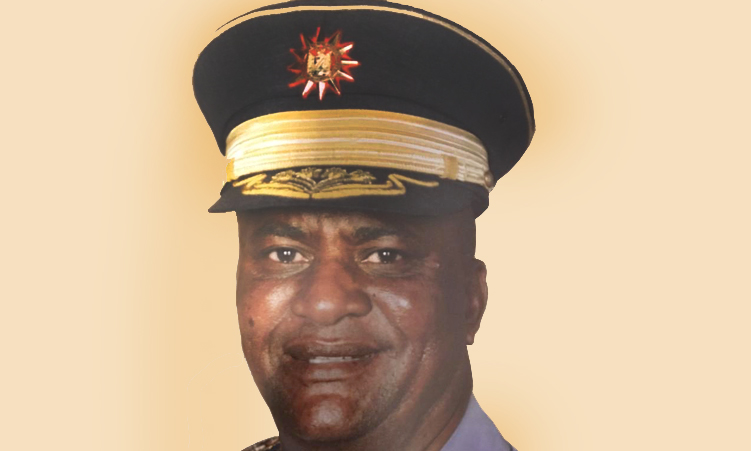Genocide denial is an attempt to deny or minimise the scale and severity of an instance of genocide.
It includes destroying evidence of mass killings, falsification of records, and spreading information through deception and graffiti, or providing half truths, and reducing what was to what might have been or perhaps what was not at all.
Denial is an integral part of genocide. Some scholars define it as the final stage of the genocide process.
Richard G Hovannisian states “complete annihilation of a people requires banishment of collection and suffocation of remembrance”.
Examples include the denial of atrocities against Native Americans in the US during the 19th century, the Holocaust, the Ovaherero/Nama genocide, as well as the genocides in Armenia, Cambodia, Bosnia and Rwanda.
Genocide denial became a mainstream idea in the late 20th century and the 21st century as a social phenomenon.
‘SYSTEMIC NEGATION’
Genocide denial has proved to be an obstacle to meaningful reconciliation and detrimental to peace and justice in societies that have a legacy of atrocities, like ours in Namibia.
It is not only an attempt to minimise or redefine the scale and severity of the crimes committed, but often contributes to the dehumanisation of survivors and victims.
This can prevent them from seeking restitution and also disregards the need for psychosocial healing.
By systematically trying to negate the facts of history, deniers manufacture doubt, sow discord and mistrust, strengthen contested narratives about the past and present, and create conditions that may lead to revenge fighting and a recurrence of atrocities.
Therefore, all forms of genocide denial via social media platforms and digital technology – designed to contradict, distort or entirely deny genocide or spread hate that may influence offline violence – must be appropriately addressed and countered.
The denial and distortion of the 1904-1908 genocide in our country is an assault on the truth, on the foundation of our society.
Memory and adequate comprehension of our history are crucial to how we understand ourselves as people, our society and our goals as a nation.
Denials or the distortion of our historical record threatens communal understanding of how to safeguard our hard-won independence, democracy and the protection of individual rights.
ASSAULT ON IDENTITY
Many deniers associated with genocide may have suffered genocide themselves, or share a history of past enmity with other people or groups of people.
Generally, changing traditional names of heritage sites; making statements demeaning descendants of genocide victims as “delusional”, or insignificant minorities in exercising their inalienable right for lost land and restorative justice; avoiding unreservedly apologising for genocide, ostensibly to circumvent reparations or compensation claims; or claiming the genocide is a distant memory; and recognising genocide events “from today’s perspective” are all genocide denial phenomena.
Denial serves to numb. It enables avoiding the unthinkable or blocking out awareness of cruelty and extreme horrors committed by some towards others, especially among members of groups identified as perpetrators.
Denial also negates responsibility, revives painful and harmful memories, and further damages the victims and individuals affiliated to them.
Such distortions of the truth and revisions of history are aimed at demolishing the identity of the targeted group and to control people’s mind constructions about the events or aspects related to them.
FORMS OF DENIAL
Stanley Cohen indicates three forms of denial in respect of what is being denied: Literal, interpretative and implicatory.
Literal denial implies that the knowledge or raw facts are blatantly denied: “Nothing happened, there was no genocide.”
With interpretative denial, the raw facts are not denied, but are given a different meaning: “It was ‘collateral damage’ … not a massacre or genocide.”
Implicatory denial refers to the minimisation of its significance or its implications: “These killings had nothing to do with us” or “it is worse elsewhere”.
The criminalisation of genocide denial by legal means and constitutional provisions has gained momentum over the last few decades in post-genocide countries.
Most countries in the European Union and Russia have laws that criminalise genocide denial.
Passing laws prohibiting the denial of genocide contribute to setting the record straight and reduce the opportunities of deniers and opinion makers to promote shameful discourse about genocides.
On the other hand, many countries with strong freedom of speech and expression laws don’t have legislation that expressly or implicitly criminalises or prohibits genocide denial.
However, despite the potential of criminal prosecution in various nations, genocide denials have developed a ‘cult-like’ following, mainly through the internet.
STRATEGY
Denial is typically considered the final stage of genocide and can last for years, decades and even centuries.
Genocide denial should therefore be taken seriously and be acutely monitored, particularly at a time when Neo-Nazi and nationalistic parties across Europe and in other parts of the world go almost unchallenged.
Another step forward would be establishing national remembrance days to commemorate genocides.
In Namibia, repeated requests have been made to our government for a1904-1908 genocide remembrance day.
In addition, school textbooks should include an objective account of the genocide, explaining what happened, why and the consequences.
They should educate people about the past, educate to debunk myths, educate about justice and equality for all, and treat all victims of genocide as their own, no matter their origin or identity.
- Major general JB Tjivikua (retd) is a descendant of victims of the 1904-1908 genocide.
Stay informed with The Namibian – your source for credible journalism. Get in-depth reporting and opinions for
only N$85 a month. Invest in journalism, invest in democracy –
Subscribe Now!






